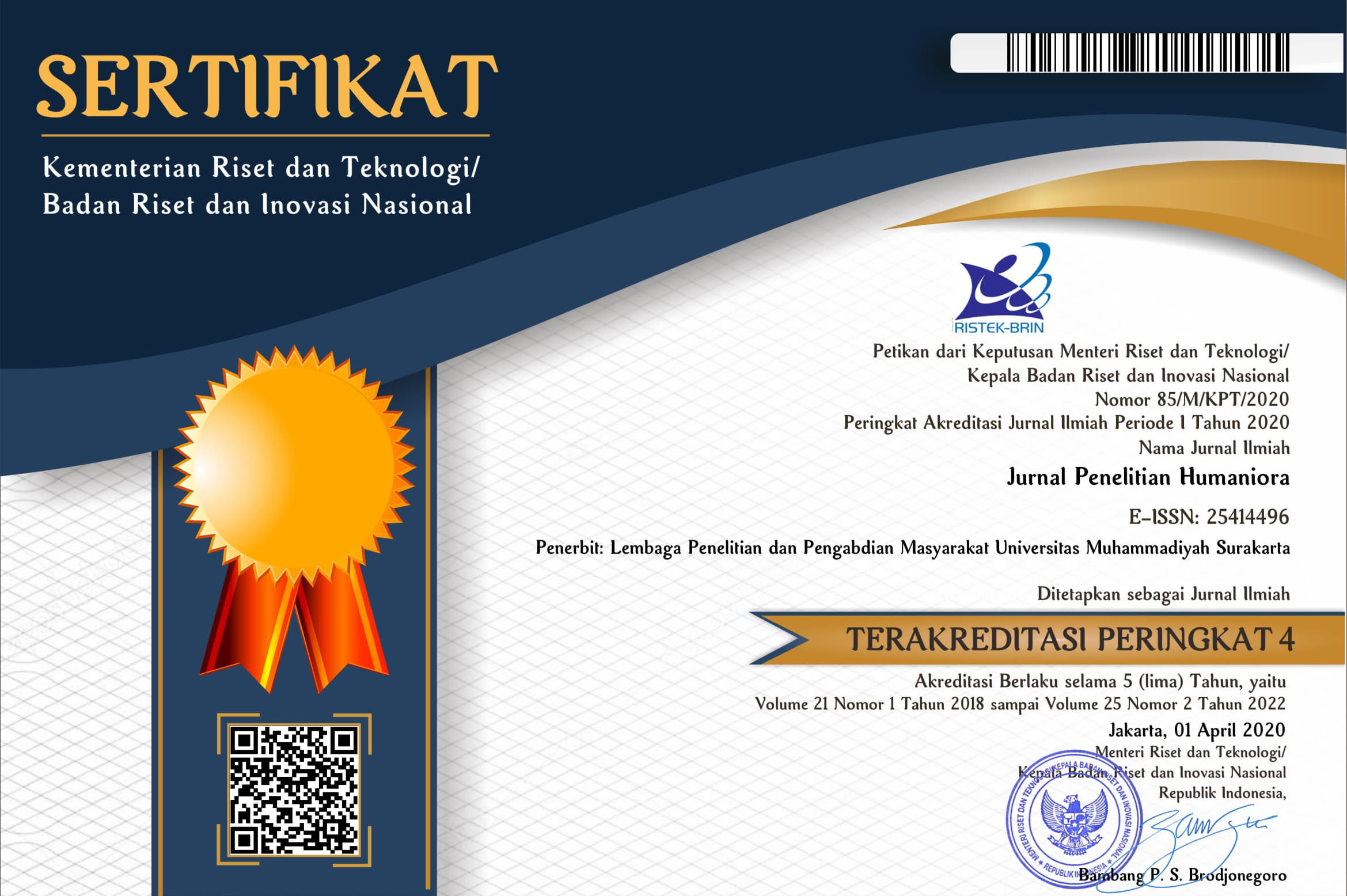POWER RELATIONS OF NON-NATIVE ENGLISH TEACHERS AND THEIR STUDENTS IN THE CLASSROOM
Sudar Sudar(1*)(1) Universitas Muhammadiyah Purworejo
(*) Corresponding Author
Abstract
The current study deals with the Power Relations between non-native English teachers and their students in the classroom. The objectives of the study is to describe the Power Relations between non-native English teachers and their students in the classroom. The data are in the form of utterances showing Power Relations which are taken from nine senior high schools in Purworejo. The researcher used the critical discourse analysis to analyze the data. The research results are as the follows: (1) in term of message units performance, non-native English teachers were more powerful than their students; (2) in five senior high schools non-native English teachers and their students performed turn distribution equally; (3) in performing the initiation, non-native English teachers are more powerful than their students; (4) the initiation of discussion topic was fully done by non-native English teachers; (5) non-native English teachers and their students had equal right to response; (6) the determination of turn-taking activities was mostly performed by non-native English teachers. In conclusion, non-native English teachers iunder the study were more powerful than their students in the classroom. It was much influenced by Indonesian culture.
Keywords
Full Text:
PDFReferences
Bloom, David. 2005. Discourse Analysis and the Study of Classroom Language and Literacy Event. New Jersey: Lawrence Erlbaum Associates Inc.
Fairclough, N. 1989. Language and Power. London: Longman.
—-. 1995. Discourse and Social Change. UK: Cambridge University Press.
—-. 2010. Critical Discourse Analysis: The Critical Study of Language. London: Pearson Education Limited.
—-. 2001. Language and Power. London: Pearson Education Limited.
Foulcault, M. 1980. Power and Knowledge. Selected interview and other writing. New York. Pantheon.
Johnstone, Barbara. 2008. Discourse Analysis. Oxford: Blackwell Publishing.
Levinson, Stephen. 1995. Pragmatics. London: Cambridge University Press.
Manke, Mary Pilips. 1997. Classroom Power Relations. USA: Erlbaum Associates.
Rex, Lesley A and Schiller, Laura. 2009. Using Discourse Analysis to improve Classroom Interaction. New York: Rouledge.
Tennen, Deborah. 1994. Gender and Discourse. Oxford: Oxford University Press
Thornborrow, J. 2002. Power of Talk. Language and Interaction in institutional discourse. London: Longman.
Van Lier L. 1996. Interaction in the Language Curriculum: awareness, autonomy and authenticity. London: Longman.
Watts, Richards J. 1991. Power in Family Discourse. Berlin: Mouton de gruyter.
Article Metrics
Abstract view(s): 394 time(s)PDF: 628 time(s)
Refbacks
- There are currently no refbacks.











